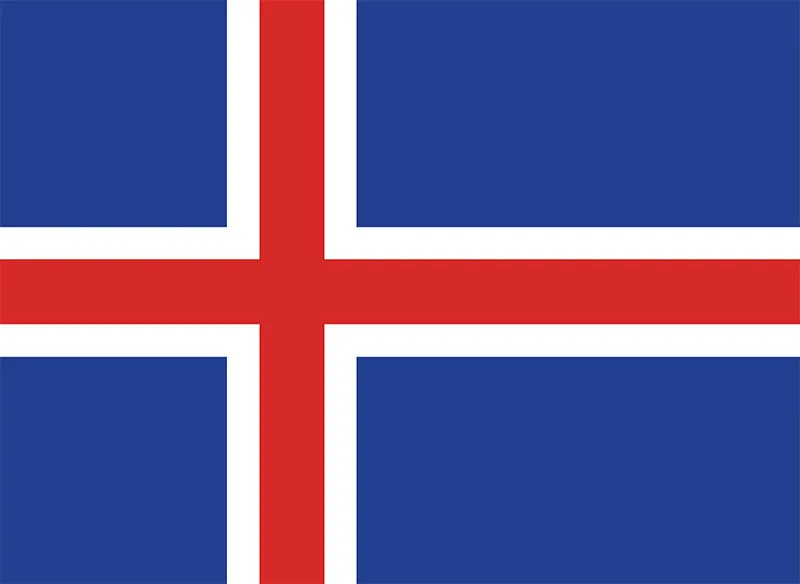Iceland, a republic located on an island just south of the Arctic Circle with a sparse population and covering just 40,000 square miles, stands as a beacon of progressiveness and peace. Often referred to as the “land of ice and fire,” it offers extended periods of daylight during the summer and darkness in the winter. The subarctic climate ensures a distinctive experience, allowing ample opportunities to indulge in the wonders of the great outdoors. It thrives as a modern society that upholds the values of freedom and equality above all else. Continuously ranking among the top nations in terms of quality of life, gender equality, and democracy, Iceland shines brightly in areas such as healthcare, education, and internet accessibility.

As reported by the World Population Review, Iceland maintained its position as the world’s safest country in 2022, making it the 14th consecutive year it has achieved this distinction. The exceptional safety of Iceland is not a mere coincidence; it can be attributed to several factors, including its closely bonded community, high quality of life, and unwavering commitment to ensuring equal rights for all its residents. Once again, Iceland stands as a global leader in healthcare, life satisfaction, and employment opportunities. The nation not only offers a superior quality of life, but also ensures accessible healthcare services at reasonable costs, accompanied by the provision of free education.
Within Iceland, there are seven internationally acclaimed academic programs spanning various fields, offering exceptional opportunities for higher education. Students from around the world are warmly welcomed to apply to these esteemed Icelandic institutes of higher learning.
The country presents an exceptional standard of living, accompanied by outstanding healthcare and education systems. With its pristine and unpolluted environment, Iceland offers a sanctuary of natural beauty. Its robust economy, cultural vibrancy, and abundant outdoor activities like hiking, skiing, and bathing in geothermal hot springs all contribute to its allure.
Iceland boasts a mixed economy that places strong emphasis on renewable energy, tourism, and fisheries. Benefiting from an abundance of renewable resources, such as hydropower and geothermal energy, Iceland has achieved energy independence.
Additionally, the tourism industry has emerged as a significant economic force in recent years. Iceland is rapidly emerging as one of the most sought-after tourist destinations across the globe. Its modern and well-developed higher education system, combined with the breathtaking beauty of the country, make it an enticing choice for studying abroad.
Once again, Iceland stands as a global leader in healthcare, life satisfaction, and employment opportunities. The nation not only offers a superior quality of life, but also ensures accessible healthcare services at reasonable costs, accompanied by the provision of free education. International students opting for Iceland can rest assured that they will have an extraordinary and warm-hearted time in this enchanting country.
Icelandic is the official language of Iceland, with English being extensively taught as a secondary language. The majority of the eight higher education institutions in Iceland offer English study programs, which entices a significant number of international students to the country each year.
As per the official tourism website of Iceland, English is spoken widely despite Icelandic being the national language. Navigating Iceland with just English should generally not pose significant difficulties. Nevertheless, it is advisable to acquaint oneself with the local language, even if it involves learning only the basics, as it enhances the experience of being abroad.
Education is highly valued in Iceland, where free education is accessible at all levels, including higher education. Furthermore, the country boasts a comprehensive healthcare system that provides universal coverage to its residents.
Various employment opportunities are available across different sectors in Iceland. Here are a few examples to consider:
- Tourism: With Iceland’s captivating landscapes and natural wonders, the tourism industry offers numerous prospects. Job roles include tour guides, hotel staff, travel agents, and hospitality managers.
- Fishing Industry: Iceland’s robust fishing industry provides a wide range of job opportunities related to fishing and fish processing. Positions such as fishermen, fish processors, quality control specialists, and boat crew members are available.
- Renewable Energy: Iceland’s renowned geothermal and hydroelectric power sources make it an attractive destination for those skilled in renewable energy. Opportunities exist in companies engaged in geothermal power plants, hydropower projects, and research institutions focused on sustainable energy.
- Technology: The growing technology sector in Iceland encompasses software development, gaming, and IT services. Job prospects include software engineers, web developers, data analysts, and IT project managers.
- Finance: Reykjavik, Iceland’s capital, hosts several financial institutions and banks. Professionals with experience in finance, accounting, or economics can find opportunities in banking, investment firms, and financial consulting.
- Healthcare: Iceland’s well-developed healthcare system presents opportunities for healthcare professionals, including doctors, nurses, pharmacists, and medical researchers.
To explore specific job openings in Iceland, you can utilize online job portals, visit company websites, or connect with recruitment agencies specializing in Icelandic job placements. Networking with professionals in your desired industry and joining relevant online communities or forums will also help you stay updated on job opportunities.
